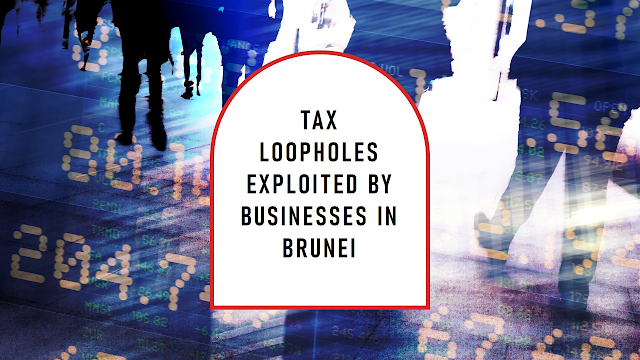BANDAR SERI BEGAWAN — Brunei's business landscape may appear thriving, but a closer look reveals a critical issue: many of the country's most lucrative businesses are legally avoiding paying taxes, depriving the nation of millions in potential revenue. As Brunei grapples with an ongoing budget deficit, the question arises—are these businesses exploiting loopholes in the tax system, and what can be done to close them?
As of July 31, 2024, Brunei boasts 136,437 registered business names, mostly sole proprietorships and partnerships, alongside 14,485 registered companies (Sendirian Berhad and Berhad) and 959 foreign company branches.
Yet, insiders estimate that roughly half of the registered companies are inactive. Meanwhile, many of the active businesses, particularly those operating as sole proprietorships and partnerships, are running multimillion-dollar enterprises—completely tax-free.
Legal Loopholes or Strategic Tax Avoidance?
Unlike registered companies that face a corporate income tax rate of 18.5%—with some sectors like oil and gas tax as high as 55%—sole proprietorships and partnerships in Brunei are exempt from paying corporate tax altogether.
This legal gap allows many businesses, including those in retail, trading, wholesale, supermarkets, and services, to legally sidestep taxes while earning substantial profits.
For these businesses, the decision to remain unincorporated is not just about simplicity—it’s about shielding themselves from the corporate tax net.
Additionally, some Sendirian Berhad companies may be active but generate meagre revenue, contributing insignificantly to the nation’s tax revenue.
Others may employ smart accounting strategies, such as categorizing personal property—like cars and houses—as company assets, effectively reducing their taxable income.
The Cost to the Nation
The impact on government revenue is significant. With such a large number of high-earning businesses legally avoiding taxes, the government is losing out on millions of dollars that could be used to fund critical public services, infrastructure projects, and economic diversification efforts.
In a country that does not levy personal income tax, sales tax, or VAT, corporate tax is a crucial revenue stream. But when so many businesses contribute nothing, the burden falls heavily on those that do.
This loss of potential revenue is particularly troubling as Brunei continues to face a budget deficit, compounded by its reliance on oil and gas.
The government has made economic diversification a priority, but with tax revenues falling short, these ambitions could be stifled.
Calls for Reform
Experts argue that Brunei’s tax structure is overdue for reform. One proposed solution is introducing a minimum tax for high-earning sole proprietorships and partnerships.
By setting a revenue threshold, the government could ensure that even unincorporated businesses contribute their fair share to the nation’s coffers.
Others suggest incentivizing incorporation through tax breaks or simplified compliance for small businesses, thereby expanding the corporate tax base. Strengthening tax enforcement and closing loopholes could also play a critical role in ensuring that all businesses pay their dues.
Public Debate: What’s Fair?
As Brunei confronts these challenges, the public is left to ponder—should businesses be allowed to profit while contributing nothing to the nation’s tax revenue? Is it fair for some to bear the tax burden while others, often more profitable, escape it?
The debate is not just about numbers; it’s about fairness, equity, and the long-term health of Brunei’s economy. If these loopholes remain unaddressed, the nation could continue losing revenue at a time when every dollar counts.
With the budget deficit looming large, the question now is whether the government will take decisive action or allow this trend to continue. The answer could shape Brunei’s financial future for years to come. (MHO/08/24)


.jpeg)
No comments:
Post a Comment